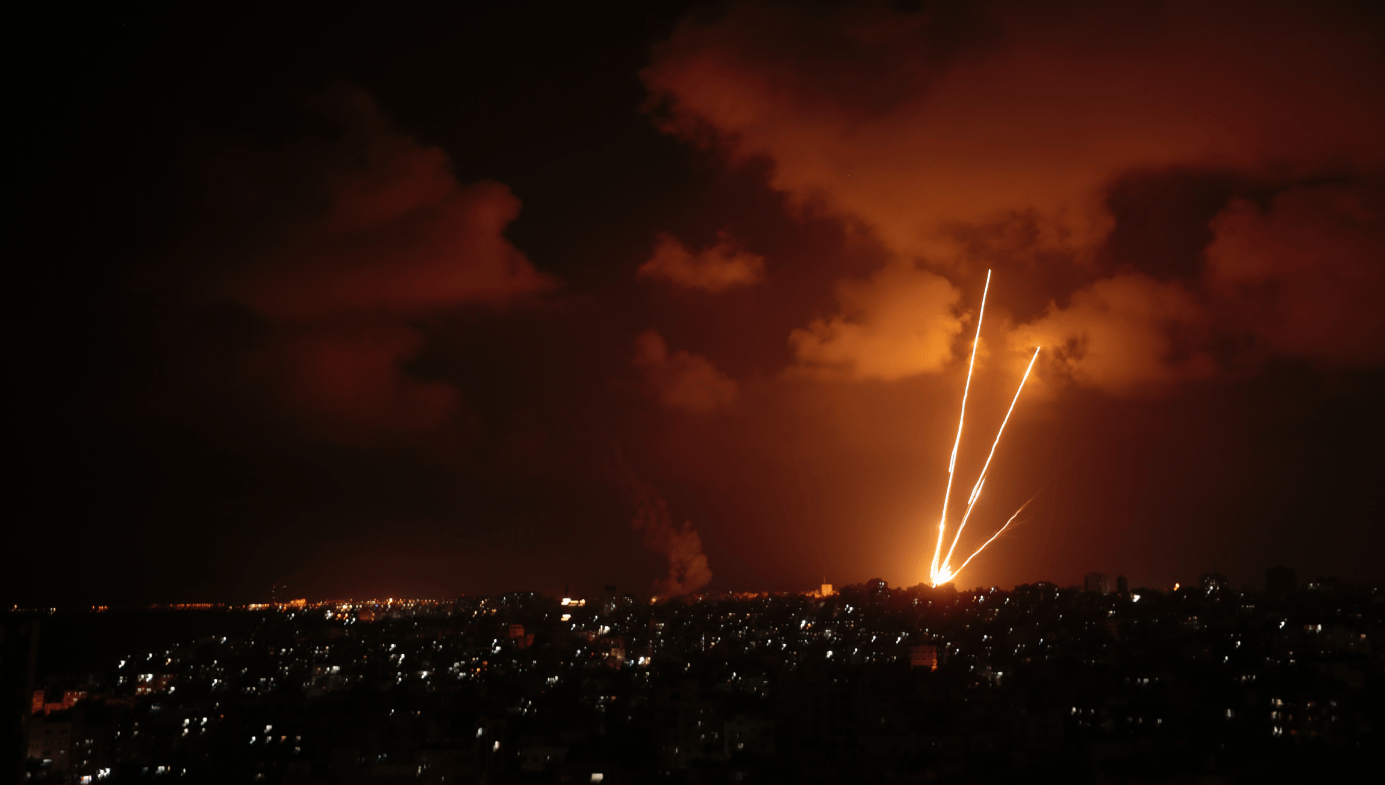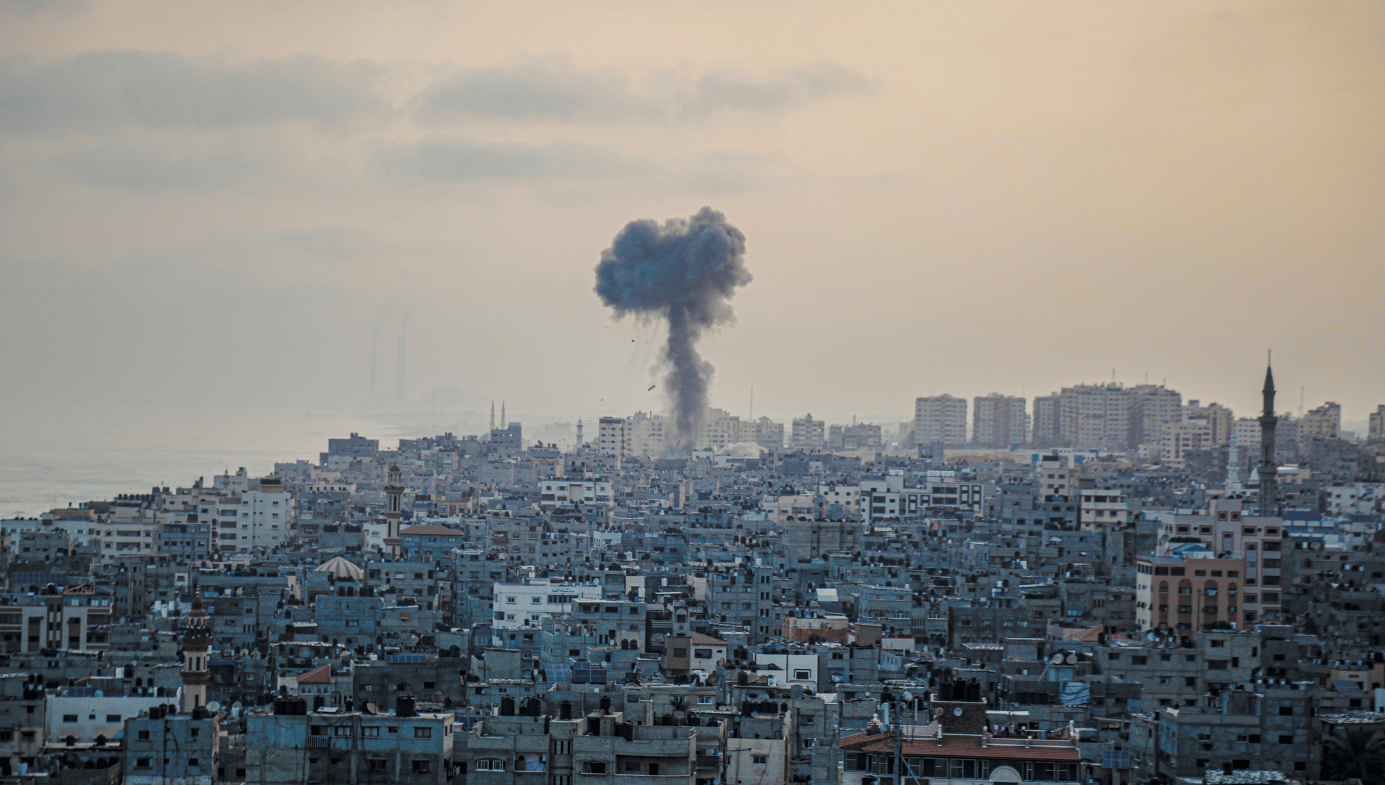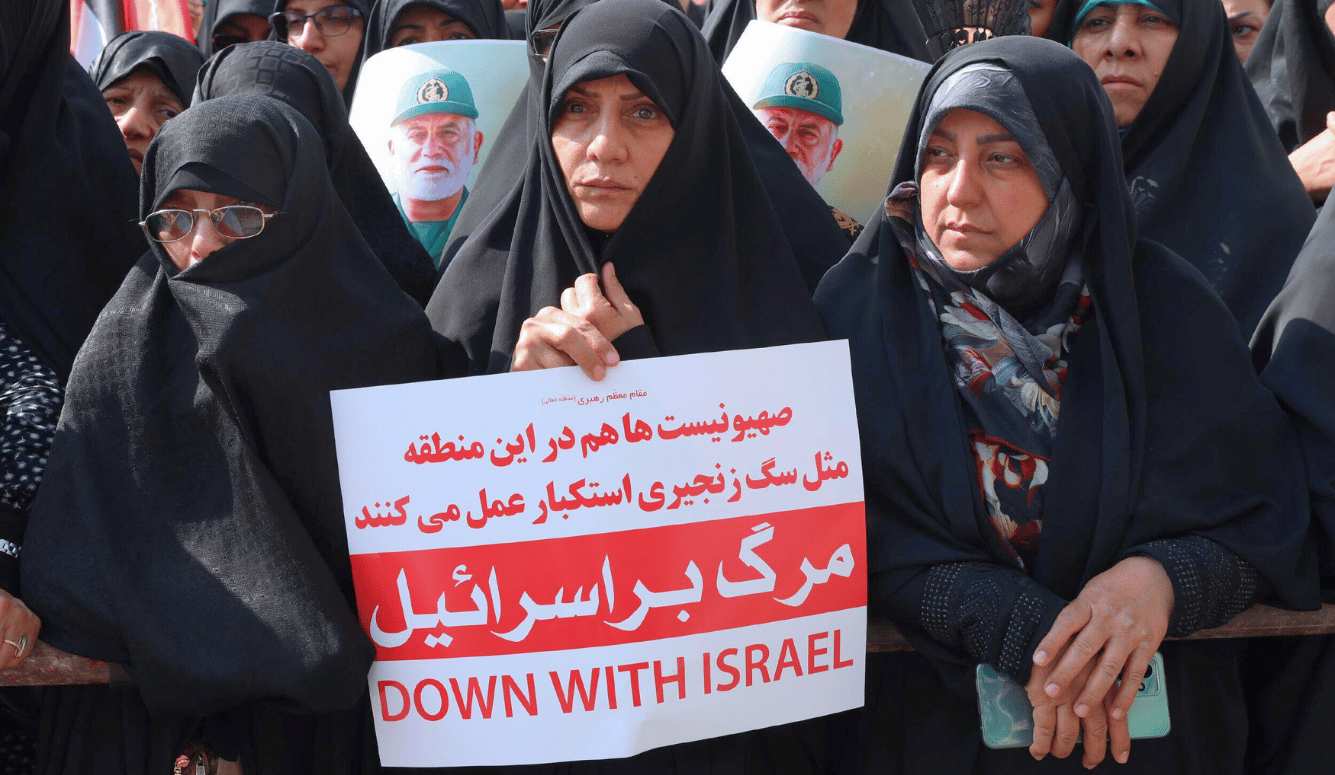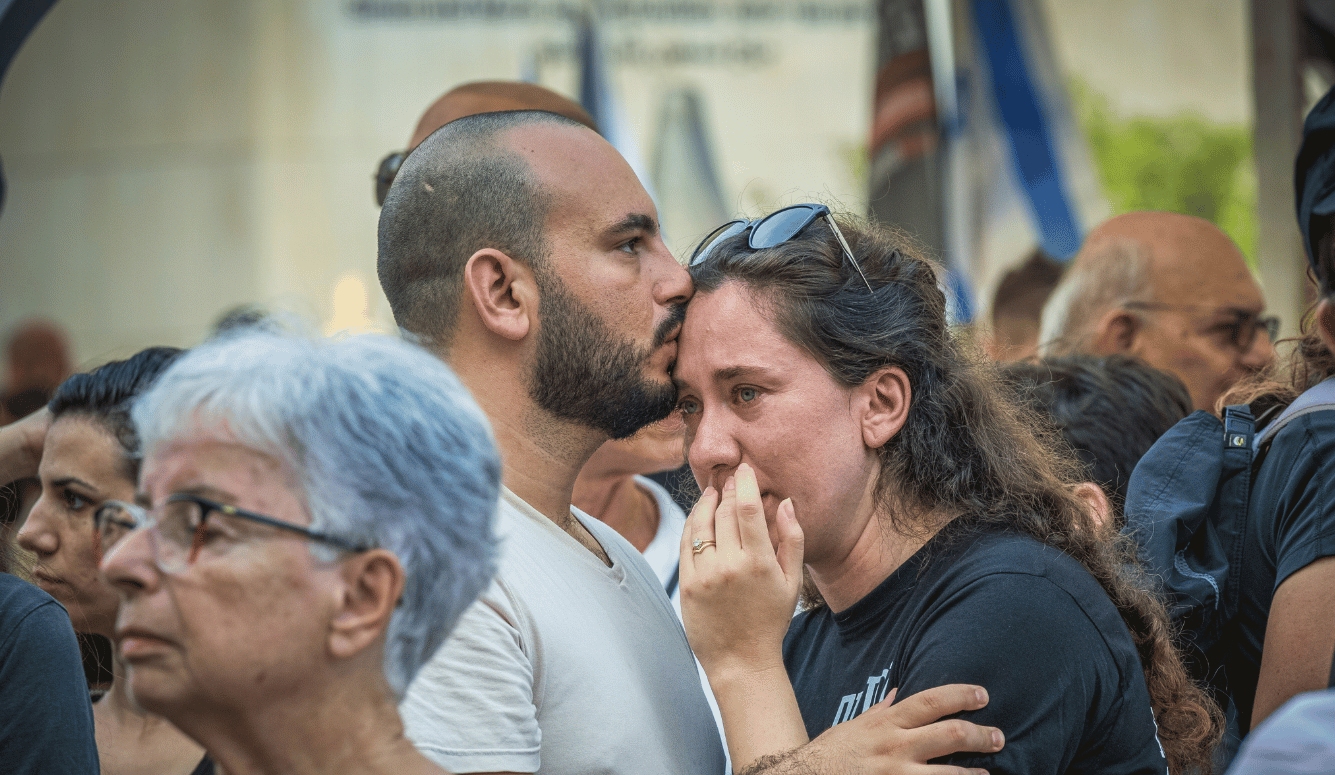Gaza and the Asymmetry Trap
The defeat of Hamas is a moral necessity, but that does not obviate Israel’s responsibility to minimize civilian suffering.

In a time of war, everybody makes proportionality arguments. But proportionality is a fool’s game, more suited to propaganda than to reasoned judgement. Some number of people are killed in some military action: are the deaths proportional? How might we know? The numbers are always disputed, and so is the balance of fighters and civilians. And then comes the critical question: proportional to what? There are many answers to that question. Choose the one you want, and it is easy to defend whatever your side is doing or to accuse the other side of committing war crimes.
One answer can be ruled out: our actions are proportional to what the enemy just did to us, as if war is like a feud in old Tennessee. That family killed two of ours, so we will kill two of theirs; three would be a crime. That doesn’t work in international politics or war. So, should we mean proportional to the value of a particular military target? That is the standard required by the Geneva Convention, but it just invites further questions: what contribution does destroying this target make to success in the ongoing battle or the longer-term military campaign—or to victory itself? Or to the deterrence of future conflicts? Or to a just peace?
Consider an example, only partly made up. The RAF is planning to bomb a tank factory in Germany in, say, 1942. The factory is located in a working-class neighborhood—it has not been placed there for civilian cover, it was simply built at a time when workers didn’t have cars. The people who estimate such things say that roughly 200 people living nearby will be killed (a low number considering the targeting devices then available). Is that number proportionate? After all, the Germans have 20 other factories making tanks. Is temporarily cutting 1/20 of German tank production worth 200 innocent lives? Some say yes, some say no. But then someone points out that these tanks are going to a Nazi army, which is still triumphant across Europe. If the end is defeating the Nazis, then, suddenly, 1,000 lives, or even 10,000, do not seem disproportionate.
In the past, proportionality arguments have mostly been used to justify “too much” killing. Right now, the argument is being used to condemn whatever killing the IDF is doing in the Gaza war. In these condemnations, it seems clear that “disproportionate” just means any number that horrifies me. The condemnations began when the numbers were much lower than they are today—and the numbers then and now are disputed. Exactly when did they become disproportionate?

And, again, disproportionate to what? To the military value of this Hamas communication center or that rocket-launching site or weapons cache? To the contribution destroying such a target would make to an overall victory? To securing justice after the pogrom of October 7th? To the safety of the citizens of Israel? To the deterrence of future pogroms? If I were speaking for the Israeli government, I think I could argue, whatever the numbers, that they are not disproportionate to one or another of these ends. But I don’t believe that arguments of this sort are morally serious. They are too easy to make.
Israel’s military response to the atrocities of October 7th is a just and necessary war. But that judgement leaves open the further judgements we need to make about the conduct of the war. Wars can be fought unjustly from beginning to end (as in the Nazis’ genocidal campaign of conquest) or unjustly with reference only to particular actions (the allies’ firebombing of Dresden). What standards should we use in making these judgements if proportionality in its too many versions doesn’t work?
I suggest the standard of responsibility. Warmakers are responsible, first of all, for the deliberate killing of the innocent, as in my Dresden example. Conventional wars offer many more examples: Russia right now is deliberately attacking civilian targets in Ukraine in an effort to demoralize the Ukrainian people and force the government to surrender. The resulting deaths may well be proportional to Russia’s large ambitions; they ought nevertheless to be condemned.
Asymmetric warfare between a high-tech army and a low-tech (or lower tech) insurgency raises similar issues: the deliberate killing of innocent people, as in terrorist attacks, is obviously unjust, and the terrorist attack of October 7th was an atrocity beyond my capacity to describe. No country in the world would endure such an attack without responding forcefully. Hence the current and ongoing war.
But how does one respond forcefully and ethically? Asymmetry raises further questions about responsibility, some of which are easier to answer than others. The insurgents, for example, fight from among the civilian population and don’t distinguish themselves from the mass of noncombatants—they don’t wear uniforms, violating one of the first requirements of international law. I wouldn’t make too much of this: think of the Minutemen in the American Revolution, who grabbed their rifles and rushed off to fight the British. But insurgents don’t always rush off to fight; they hide among civilians and use “human shields,” deliberately putting innocent men and women at risk, which seems obviously wrong. That might simply be an available way of protecting themselves, a military tactic—a case of micro-immorality. But it is usually something more.
Deliberately putting the entire civilian population in harm’s way is a military and political strategy. It is designed to make it impossible for the enemy to fight without killing civilians. This has been Hamas’s strategy in all its wars with Israel; it embeds its fighters in the residential neighborhoods of Gaza’s cities and in the institutions that serve civilians. It stores rockets in mosques and schools, puts its communication and control centers in or under hospitals, and fires rockets from schoolyards and hospital parking lots. This is macro-immorality. Every dead civilian is a political asset for Hamas, and this probably accounts for its failure to build civilian shelters (in contrast to the tunnels that protect only fighters). As the number of dead and injured civilians mounts, Israel is held responsible for the killing. It loses political support and comes under increasing pressure to accept a ceasefire before it has won the war—which would leave Hamas in control of Gaza, triumphant, and ready to launch the next terrorist attack. And then we would have to say that the strategy has worked.
But the toll of death and injury is horrifying, and the normal human response to such suffering is a cry for it all to end: stop the fighting!—which is, again, the response Hamas’s strategy is meant to produce. The hostage crisis adds force to the cry, and seeking pauses in the fighting or temporary truces seems the right policy, not only for the awful but necessary business of trading human beings but also for the time it allows for humanitarian aid—and finally because a “temporary” pause permits the renewal of the fighting. This sounds terrible; it is a painful demonstration of the moral difficulty of asymmetric war. But we have to think beyond our feelings and acknowledge that the suffering will continue until those who designed and began the war have been defeated.
I had better make this terrifying argument more specific: the defeat of Hamas is a moral necessity and it requires a kind of moral toughness that isn’t always admirable. But a commitment to see the war through doesn’t preclude sustained criticism of how the Israelis respond to what we might call the asymmetry trap.
It is difficult to engage Hamas’s strategy militarily without contributing to its success, and it is critically important to acknowledge the difficulties when we judge the engagement. Israel’s high-tech army has clear moral responsibilities: to do everything it can to minimize civilian casualties. That means targeting as carefully as possible and accepting risks in gathering the information that makes targeting precise. It also requires putting troops on the ground so that they can see clearly enough or get close enough to aim narrowly at combatants. But even if the IDF does all this and accepts the morally necessary risks, it will kill large numbers of civilians.
Note that pragmatism is on the side of morality here. The question of “who benefits?” has a very clear answer. Hamas benefits from civilian deaths; it isn’t indifferent to the fate of the people it rules, it has a positive interest in their suffering. Israel definitely doesn’t benefit. Whatever military gains it makes by hitting targets embedded in the civilian population, it loses politically on account of the civilian deaths it causes. So immense care is required. Israel today, assuming its military leaders are at least minimally rational (and ignoring the moral lunacy of its political leaders), doesn’t intend to kill civilians. But morality requires more than that: Israel must intend not to kill civilians. It must take positive measures to minimize the deaths it causes. That is also a requirement of rationality.
Is Israel taking immense care? That may be a hard demand given the emotions produced by the massacre of October 7th. Israel’s political leaders have talked too much about revenge; the rage of their rhetoric is understandable but wrong—it is sure to make for a bad war if it is allowed to govern the conduct of hostilities. The pictures we are shown on television here in the US, pictures of demolished apartment buildings and city streets reduced to rubble, make it hard to recognize any care at all. But Hamas is invisible in these pictures, and it has been invisible since October 7th. We don’t know what military targets lie under the rubble, and journalists at the scene, some of whom certainly know, don’t tell us.
I assume that the leaders of the IDF understand the asymmetry trap and are aiming at military targets as best they can. Years ago, Israel adopted a set of targeting procedures carefully formulated to meet the requirements of law and morality. How these procedures work in the heat of battle is always uncertain, but they work far better than Israel’s critics admit. The bombing of Gaza is not indiscriminate, though sometimes it may be carried out with inadequate or outdated intelligence—and sometimes, perhaps, with the angry thought that Hamas is everywhere.
There is more that Israel has to do: the warnings it sends to civilian residents, the evacuations, and the humanitarian corridors are only a beginning; there have to be adequate supplies for the refugees sent south to escape the battle for Gaza City. Hamas’s refusal to share its extensive resources with its own people means that Israel has to step in, however strange that seems. In conventional wars, one side is not required to re-supply the other side when its resources are depleted. But the nature of asymmetry and the recent history of Gaza make it necessary here. It is especially important for Israel to supply fuel for the hospitals over which it has assumed control—hospitals that Hamas used for military purposes while failing to provide the electricity necessary for medical purposes.
How should we assign responsibility for civilian deaths in asymmetrical wars like this one? I mean to write here only about wartime responsibilities, not about political responsibility before the war and not about the responsibilities that come after. We need to think carefully about what went before and to worry about what comes next, but that is for another time.
The question of military responsibility has political as well as moral implications. It matters how it is answered—in Israel, in the Arab world, in Europe and the US. Efforts to produce answers have led to renewed interest in international law and even in the academic theory of just war. Whose conduct is lawful? Whose conduct is just? The place to begin the argument, it seems to me, is with Hamas’s decision to embed itself in the civilian population—a decision designed to set the asymmetry trap. Or, more clearly, the decision was designed to make Israel look as if it is fighting illegally and unjustly, no matter how it fights. So Hamas should be held responsible for launching a war that was intended to produce large numbers of deaths among its own people. And Israel is responsible for all the deaths it causes beyond those that are unavoidable in the war Hamas designed.
Of course, if other countries joined the struggle against Hamas, many lives would be saved. I am not calling for military intervention; Hamas can also be destroyed or greatly weakened politically and financially. There is responsibility for inaction here, though I am not sure how to assess it.
In conventional wars, both sides try as best they can to protect their civilian populations. In asymmetric wars one side not only declines to do that but, instead, exposes its civilians to injury and death, a matter of deliberate strategic planning that makes it very hard for the other side to fight at all. Judging wars of this kind, we need a new maxim: neither international law nor just war theory can be used to make it impossible to fight a just war. Israel has to be held to the high moral standards that law and justice entail—but not to standards raised so high as to make anything it does illegal and unjust. It can’t be asked to avoid civilian casualties; Hamas has made that impossible. But it can be asked to meet the moral requirements I have described with regard to targeting, intelligence gathering, and humanitarian supply.
And all of us who look on this terrible war from a distance have our own moral requirement: to recognize the complications of asymmetry and do the best we can to assign responsibility justly.











